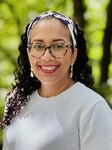
Though I had originally planned to pursue psychology, I took an introductory social work course in college and knew right away that it was what I wanted to do. Social work felt more organic—an in-depth, hands-on and holistic approach. I liked that there were so many different clinical approaches or interventions you could take in supporting your clients, whether that involved the social worker being more of a listening ear or taking on a more directive and interactive approach, where the client and social worker work together to find a way to cope.
A cancer diagnosis impacts all aspects of a person’s life. With that in mind, it’s vital to have an outlet where they can process all the complex thoughts and feelings that arise. For Spanish-speakers affected by cancer, there are often added layers of complexity. For example, medical terms are already confusing, so it can be even more difficult for non-native English speakers. Medical jargon can be hard to understand even with an interpreter. It is also important to consider how cultural norms play a role in how people communicate with their medical teams and how (or even if) they make their needs known.
In oncology social work, sometimes the most rewarding moments aren’t the happiest. Several years ago, I worked with a Hispanic family in which a single mother of three was diagnosed with terminal cancer. Each family member worked with their own social worker. The mom couldn’t bear to tell her children that she was dying, and her social worker empowered her to have this conversation and modeled what language to use. The subsequent family session was probably one of the most emotional I’ve ever had. Being able to support clients in having open communication is one of the most fulfilling parts of this career, and I don’t know if that conversation would’ve happened if they weren’t at CancerCare.
